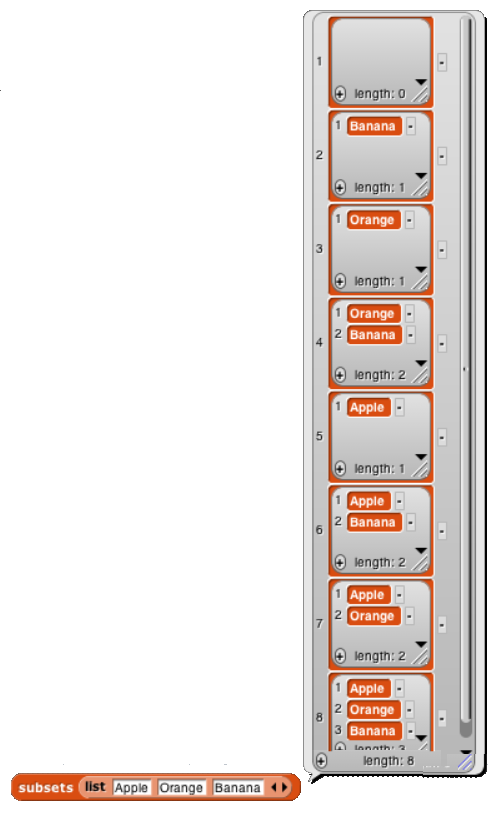- Write down all the subsets of {Apple, Orange, Banana}. How many are there?
- Write down all the subsets of {Pretzel, Apple, Orange, Banana}. Try to do this with as little work as possible.
-
Now create a
subsetsblock that takes a list as input and reports a list of lists in which each item is a subset of the original input list. The order in which the subsets appear in the output list doesn't matter, but each subset must appear exactly once. The result might look like this:

If you're stuck after trying as many ideas as you can think of, go to this page for some help.